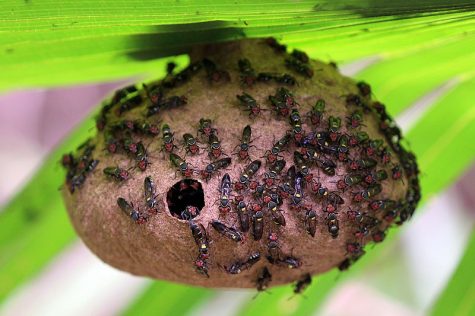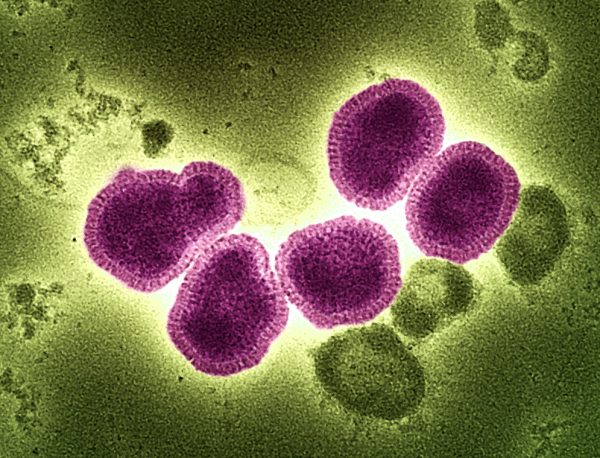Wasp Gives Clue to new Cancer Therapy
Surgery. Chemotherapy. Radiation therapy. These are just some of the many treatments that have been devised to combat cancer, an umbrella term for many serious diseases that involves the uncontrolled growth of body cells. Patients may spend many months and years trying to defeat this deadly illness, and during this time, face debilitating side-effects that result from the treatments they take. Many of these side-effects are inevitable because cancer therapies such as chemotherapy terminate cancerous as well as fast-growing healthy cells. Despite the harm to their body, most people have no choice but to take these treatments.
In recent months, however, the Biophysical Journal published an extensive study that focused on a rather peculiar creature. This creature, a Brazilian wasp known as Polybia Paulista, is believed to have a powerful ingredient in its venom that can selectively target and terminate cancerous cells. If the facts hold true, this finding may very well be a phenomenal leap in the realm of oncology.
The reason why we have not created an effective, foolproof treatment for cancer is because it is incredibly difficult to permanently stop the growth of cancerous cells. Once cells begin to divide abnormally, the affected tissue may undergo hyperplasia, a condition that can precede cancer. If the cells continue to proliferate uncontrollably, dysplasia, a more serious condition, may occur. Examples of dysplasia include the dark moles some people have that protrudes beyond the skin (also known as a dysplastic nevus). As the condition becomes worse and worse, dysplasia becomes carcinomas in situ, which is then called cancer if the abnormal cells spread beyond the original tissue. Although oncologists can usually cure early forms of cancer and several types of leukemias, lymphomas, breast and colorectal (colon or rectum) cancers, we have not been as successful with metastatic cancer, also called Stage IV cancer. Even with the cancers that are treatable, most patients must deal with serious side-effects that can be permanent.
The venom in Polybia Paulista, however, includes a protein that could be a treatment for cancer without debilitating side-effects. This peptide, known as Polybia-MP1 (or just MP1 for short), supposedly distinguishes healthy body cells from cancerous cells by detecting abnormal arrangements of lipids that characterize the membrane of cancerous cells. According to a PBS news article, Polybia-MP1 specifically respond to two lipids known as phosphatidylserine (PS) and phosphatidylethanolamine (PE), which a lot of cancer cells have in their membrane. When Polybia-MP1 peptides are within the vicinity of cells, the MP1 peptides tend to stick to cells with PS in their membrane (specifically seven times more than an average cell). When the peptides stick onto the cell, they create small holes in the membrane that leak out the contents of the cell body. Furthermore, MP1 peptides open holes twenty to thirty times bigger than they normally would if that cell has PE on its membrane. Thus, this protein can be very beneficial to patients because of its ability to distinguish healthy tissues from malignant tumors,
So far, scientists have found that MP1 had worked in preventing the spread of bladder and prostate cancer cells, and they believe that it could also target and terminate leukemia cells. Though treatments with this protein is still in the rudimentary stage, we may have unlocked a very important secret to combat many potent forms of cancer. And if this protein proves to be a success, we will all have to admit, perhaps grudgingly, that a wasp led our victory over one of the toughest, most potent diseases on Earth.

The hive of wasps indigenous to Brazil.










